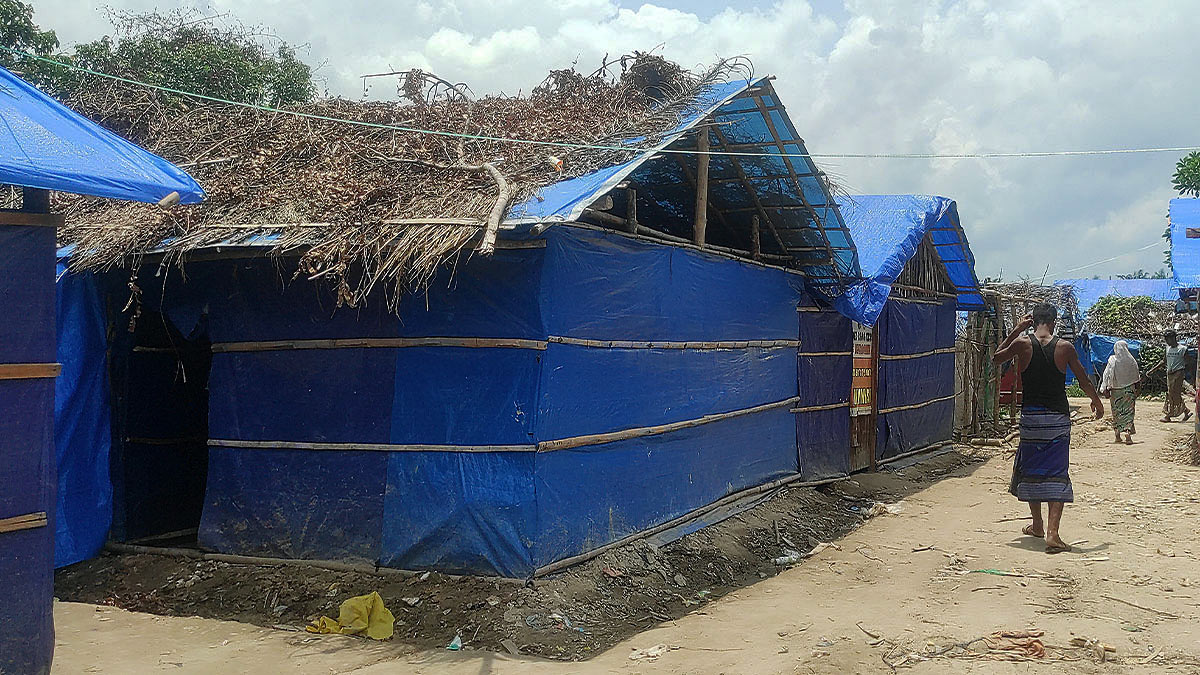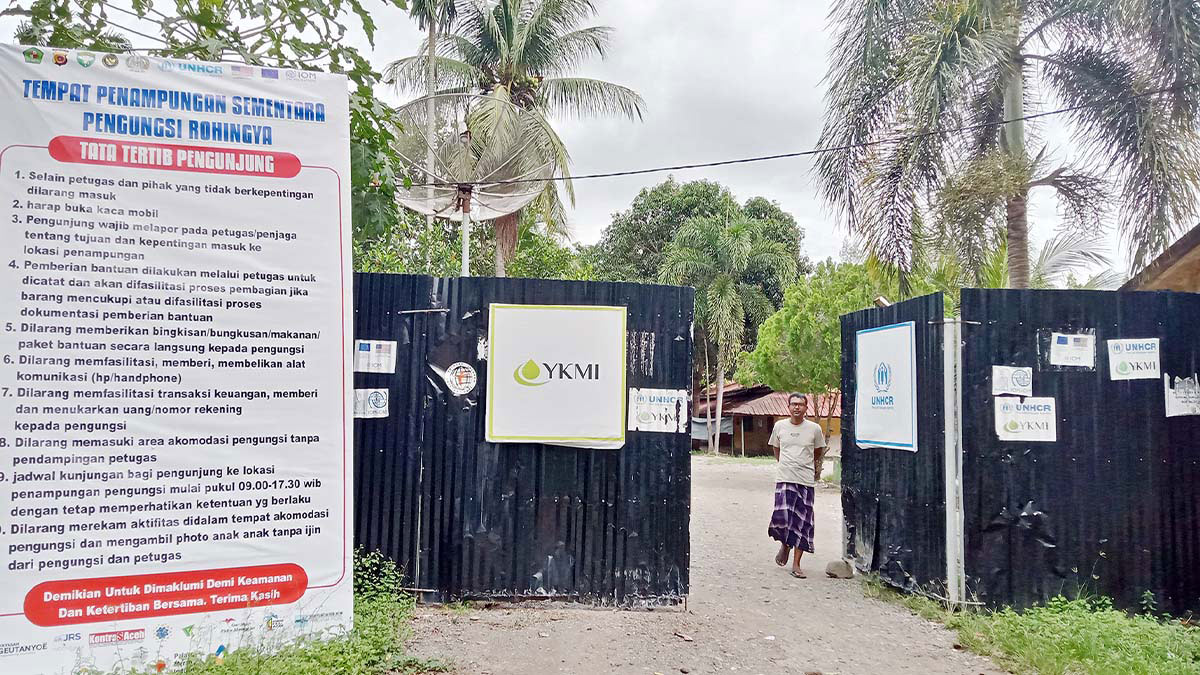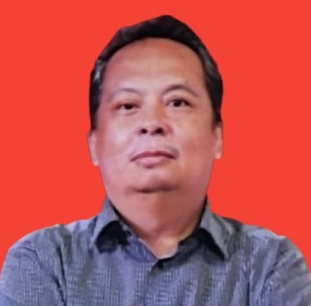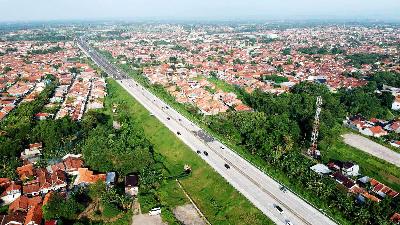Solutions for Rohingya Refugees in Indonesia
Monday, October 21, 2024
The increasingly overcrowded refugee camps demand improvements in the mechanisms for handling Rohingya refugees. The number of refugees continues to rise.
arsip tempo : 174530338357.

THE difficult journey with a sweet ending for a Rohingya refugee is reflected in the story of Hafsar Tameesuddin. She experienced the hardships of living in refugee camps in two countries. But now, she is independent and dedicates herself to being an activist helping refugees and other marginalized groups.
Hafsar lost her citizenship at birth due to policy changes in Myanmar in 1982. In her 20s, about 15 years ago, she sought asylum in Thailand. There, she struggled for two years without success. She then spent the next nine years as a refugee in Malaysia.
Her luck changed in 2019. She was selected to join a resettlement program in New Zealand. In her new country, she was given various opportunities, including the chance to continue her studies and earn a degree. Today, she is a social activist and serves as the Co-Secretary-General of the Asia Pacific Refugee Rights Network (APRRN).
Hafsar describes her experience as an unimaginable blessing. “If you look at the statistics, less than 1 percent of refugees are resettled,” she said on Monday, October 7, 2024.
Resettlement is the dream of refugees, including thousands of Rohingya people in Indonesia. They generally consider Indonesia a temporary stop before getting a chance for resettlement in countries that have ratified the 1951 Refugee Convention. In those destination countries, they can obtain full guarantees of their rights.
Unfortunately, as Hafsar mentioned, resettlement opportunities are minimal. The available resources are not proportional to the number of refugees. The limited quota often leaves many refugees hopeless as they wait in refugee camps with no clarity about their future.
For the Rohingya, the situation is worse because the other long-term solution, repatriation, is even harder to implement. The repatriation program requires two things: security guarantees and voluntariness. While many Rohingya refugees wish to return to Myanmar, the security conditions are difficult to meet. The country still does not recognize them as citizens, making repatriation impossible.
•••
THE United Nations High Commissioner for Refugees (UNHCR) in Indonesia recognizes that long-term solutions for refugees have not yet provided much hope. “We know that resettlement alone is not enough, it will never be enough. We also know that voluntary repatriation will not happen quickly,” said Emily Bojovic, Senior Protection Officer of UNHCR Indonesia, on Wednesday, October 2. Therefore, she said, alternative solutions are needed.
One urgent issue that needs to be addressed is the poor condition of refugee shelters. “In Indonesia, the refugee camps are not very good. In Aceh, for example, some people are living in tents not far from the beach,” said Bojovic.
Such temporary places make it difficult for the UNHCR and the International Organization for Migration (IOM) to improve services for refugees. The uncertainty about how long these shelters can be used makes it hard for them to enhance facilities in those locations, as they must account for all the funds used to donors.
In Pekanbaru, Riau, there is also uncertainty regarding the provision of shelters. The region has eight accommodation facilities for refugees, including guesthouses, hotels, shelters, and boarding houses, which accommodate 965 refugees, including 296 from the Rohingya community. However, these places are no longer enough as new Rohingya refugees keep arriving. Around 470 people have arrived since mid-2024. They initially occupied sidewalks and later moved to vacant land near the Pekanbaru Immigration Detention Center. Now, the landowner has filed complaints, and a new shelter location must be found.
The acting Chief of Foreign Refugee Handling Task Force, Brig. Gen. Adhi Satya Perkasa, acknowledged that there are still obstacles in providing shelter for refugees. Presidential Regulation No. 125/2016 on Foreign Refugee Management stipulates that this is the responsibility of regional governments. However, many regional heads are currently acting officials, making it difficult for them to make sensitive decisions. “Their position is becoming increasingly difficult because there are also rejections from the community,” he said on Wednesday, September 25.
To improve this situation, Adhi continued, the presidential regulation on refugees needs to be revised. One proposed change is to prioritize the role of immigration authorities in the initial handling of refugees by modifying and using some detention houses as shelters. “Every time refugees arrive, they can immediately be transferred there,” said Adhi. “So there is certainty, and there won’t be confusion like now.”

A temporary shelter for Rohingya refugees in Aceh, October 3, 2024. TEMPO/Dian Yuliastuti
Nasir Djamil, a member of the House of Representatives (DPR) from Aceh, agrees that Indonesia needs to synchronize and harmonize refugee regulations. He believes that the presidential regulation does not yet provide certainty for regional governments. “Because there are no clear rules, people in the regions are uncertain and cannot act freely,” said the politician from the Justice and Prosperity Party (PKS) on Monday, September 30.
Bojovic called for greater changes. As a country that has not ratified the Refugee Convention, Indonesia, she said, has already extended much help by providing shelter locations. However, she added, more needs to be done to allow refugees to live in more humane conditions. This has not yet been realized. “They cannot get jobs, and it is not easy for children to access education,” she said.
Bojovic said that Indonesia needs to take the issue of inclusive policies for refugees more seriously. Ideally, refugees should be integrated into the education, health care, civil registration, social, and judicial systems. “That is our goal, and I believe Indonesia can achieve it,” she stated.
Adhi Satya Perkasa stated that the proposal to integrate refugees into Indonesia’s system is difficult to implement. As a country that has not ratified the Refugee Convention, Indonesia is not bound by such obligations. Moreover, the country still has a high poverty rate and limited job opportunities. “Providing job opportunities to refugees would trigger social jealousy,” he said.
•••
WITHOUT adequate solutions, the refugee issue could become a ticking time bomb. A United Nations report revealed that 120 million people—including 1.1 million Rohingya—were forced to flee due to conflict and violence in 2024. This is a record high, representing 1.5 percent of the global population.
Emily Bojovic believes these numbers will not decrease anytime soon. In recent years, wars in Ukraine and the Middle East have erupted. While the previous waves of refugees are still struggling with various issues, new refugees are emerging. If they are not given opportunities to be independent, they will continue to rely on aid. This situation, according to her, is worrying. “The needs are enormous, and it is unsustainable.”











